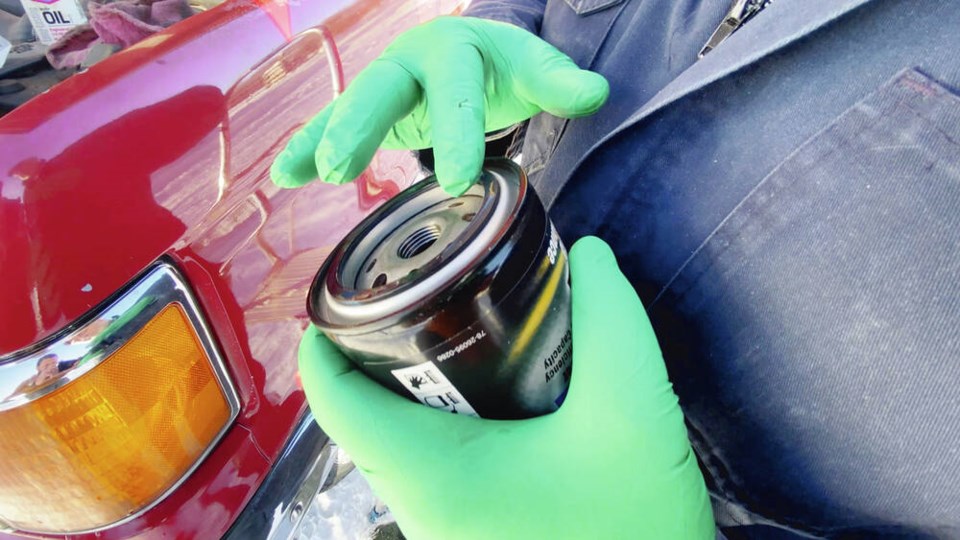It shouldn’t be much of a surprise to anyone that as we still struggle through post pandemic inflation that more and more drivers are ignoring routine but essential vehicle maintenance habits. Fixing a car is an expensive proposition today, with the typical garage visit running between $50 and $180 per hour — plus whatever you need for parts.
The result is more people delaying or ignoring essential repairs, putting more and more unroadworthy vehicles on our streets.
According to a recent Royal Automobile Club survey, a quarter of young drivers, aged 17-24, say they’ve put off essential vehicle repairs because of the cost, while another third of young drivers aren’t servicing their vehicles as often as they should.
You don’t have to look too far on Island roads to see the same issues. Burned out headlights, faulty tail lights (or no tail lights), bald tires and loud burned out mufflers are an everyday experience on the local streets.
These problems don’t just rest with passenger vehicles either. Back in August, a safety blitz in Langley saw 35 of 74 commercial vehicles inspected towed away for defects that made them unsafe to be on the road.
While costs for repairs can mount up quickly, you are legally responsible for the condition of your vehicle and can be held liable in a crash caused by inadequate maintenance. Your best bet then is prevention — nipping smaller maintenance issues in the bud before they become a real vacuum on your wallet.
Here are a few preventative maintenance measures that can keep you from more grief down the road:
• Change your oil regularly and without fail. This is probably the top preventive maintenance tip. A smooth well lubricated engine is the best defence against the dreaded “check engine” light. Engine repairs can range into the thousands and take a long time to complete. An oil change every 5,000 km is peanuts in comparison.
• Check your headlights and taillights frequently. It’s easy to do a walk around at least a couple of times a month to ensure all lights are on. Having no tail lights and or brake lights is one of the most dangerous scenarios for other drivers. Lights are also among the cheapest repairs you can make.
• Rotate your tires at least once a year. Rotated tires last longer because it evens out wear when one or more tires might not be perfectly aligned. Tires are really expensive. It’s easy to spend over $1,000 for a new set of rubber today. So getting as much life out of them as possible can be a real cost saver.
• Keep your battery clean. Terminals on batteries often corrode or become loosened and stop working. As I’ve said before, this always happens on a busy highway on a rainy Sunday night, 50 km from nowhere. A simple inspection and cleaning can preempt all this.
• Replace noisy or defective brake pads as quickly as possible. Brake jobs are expensive — full stop. But whatever the cost, the cost of not being able to stop quickly or properly will be way worse. Don’t mess around with brake problems.
• In the less expensive realm, change your windshield wipers regularly. They are one of the cheaper repairs out there. A clear field of vision is one of the best defences to react quickly to problems on the road. Ignoring this $40 to $50 repair will be one you regret, especially at this time of year.
• Replace your cabin air filter. These are not exactly cheap either, around $400 to $500. But having a clogged filter damage your whole air conditioning system will end up costing you $1,500 to $2,500 or more, not to mention the time it takes to do the work.
Finding a repair shop you can trust is essential. Efficient, honest mechanics are gold. Don’t be afraid to shop around for quotes and look for referrals from people you trust.
Maintaining a vehicle is expensive, so your best option is to keep things ticking along with a regular regime of good old prevention. Reacting to serious mechanical problems will always be way more expensive — and possibly dangerous for you and others on the road.
Glove Box: Fred from Nanaimo wrote to point out a winter season problem that I’m seeing more frequently myself — oversized tires uncovered by either proper fenders or mud flaps. It’s a pretty straightforward rule under the motor vehicle regulations: if the construction of your vehicle or trailer allows tires to stick out from the sides, then those tires must be covered with either mud guards or mud flaps. Spray from uncovered wheels can quickly obscure the vision of other drivers, not to mention increase the damage and wear on the bodies of unprotected vehicles themselves. You can be dinged $109 for each uncovered wheel.



